curated by Simone Bardoni and Emma Baruffaldi
One of the geographical Focus is on Lithuania. The idea of this Focus comes from the victory of Kolektyviniai sodai (Community Gardens) di Vytautas Katkus at the last edition of Concorto: an Asino d’Oro (Golden Donkey) glued to the cinematic present and to an evolving cinematography. For the last two decades films and short films, as well as retrospectives on the most relevant Lithuanian directors, have been premiered at the most important international festivals. The feeling of an active movement is reinforced not only by the increase in film production – in 2016, 13 Lithuanian films debuted in cinemas while in the last ten years there have been only two or three feature films a year – but also by daring premières of young artists. In these films we experience an ironic point of view on reality and an analysis of social masks. A strong tradition of documentary films has developed in Lithuania since the 1960s and has encouraged filmmakers to discover original perspectives and to explore existential questions as well as national identity. The contemporary Lithuanian documentary often departs from the canons and looks for new ways to express reality, frequently dealing with painful social issues. Short films and animation films are original and atypical too. This intersection between traditional auteur cinema and Lithuanian cinematography shows new stylistic and thematic trends that we want to highlight with this Focus.
The focus is organised together with Lithuanian Shorts: an agency of short films that promotes Lithuanian short films nationally and internationally.
The selected shorts
curated by Simone Bardoni and Emma Baruffaldi
Kolektyviniai sodai (Community Gardens), Vytautas Katkus, 2019
Komisija (Commission), Vytautas Oškinis, 2019
Konkursas (The Contest), Saulė Bliuvaitė, 2019
Laivas (The Ship), Jokūbas Lapinskas, 2018
Stovintis vanduo (Still Water), Dagnė Gumbrevičiūtė, 2018
Vienas gyvenimas (One Life), Marija Stonytė, 2019
Kolektyviniai sodai – Vytautas Katkus
Seen by Elena Saltarelli
This short film, whose director is the Lithuanian Vytautas Katkus, takes a fire broken out in a residential area as a pretext to talk about a father-son relationship. The son, who has emigrated to Albania, has quite a superficial relationship with his father and this reverberates, just as it happens
with the fire’s flames, every time they talk. The colloquial tone of the camera dwells on the effect of action and reaction taking place between the two, creating subtly tragicomic situations but outlining a bleak picture of the father-son relationship in question. The absence of a grandchild is repeatedly emphasized, suggesting the lack of responsibility of the 32-year-old son, who every passing minute feels more and more uncomfortable in a family that he barely feels like his own.
Komisija – Vytautas Oškinis
Seen by Yorgos Kostianis
A first-time glimpse into the work of The State Commission of the Lithuanian Language. In recent years, the commission’s linguistic choices has been a subject of scrutiny and criticism amid Lithuanians. For some, it’s an institution which safeguards and spreads the most important principles of the language. Whereas, for others, it’s an anachronism of the Soviet regime, trying to legitimize itself through the use of bureaucratic levers.
Like a fly on the wall, the director listens carefully to their debates and craftily chooses to show us certain debates than cannot help but feel allegorical of today’s, ever widening generational gap.
Konkursas – Saulė Bliuvaitė
Seen by Irene Pagano
Navigating social network dynamics and becoming aware of their unwritten laws regulating interaction can prove to be an exhausting nightmare, especially for adults. It’s almost like suddenly having to deal with a language we thought we could understand, just to realize we’ve always done nothing but oversimplifying it, misreading it in the heat of our communication-anxiety-fuelled hurry.
Silvija, the main character of Saulė Bliuvaitė’s short film “The contest”, is a divorceé and mother of two already indipedent young adults. To her, social networks are not a space meant for sharing, but one for competing. Showing off her contentment, strenght and power to pull oneself back together and triumph (all this while hoping said triumph will be achieved in front of of her ex-husband) are the real aim of the “contest”. What’s left to her children is a confused sense of embarassment and responsability, the duty of protecting their parent from herself and the world she can’t properly decipher, but also that of protecting their own selves from her toxic influence. A shield of detachment and listless apathy, paired with the will to define their identities apart from their roles inside the family circle, are the tools that will lead them to a weird conclusion, halfway between an ephemeral happiness and a bitter attempt to escape reality.
Laivas (The Ship), Jokūbas Lapinskas
Seen by Yorgos Kostianis
The past is a grotesque animal and the wounds left by its jaws are not easy to heal.
After the death of their relatives two brothers try to lick their proverbial wounds by desperately clinging on to each other, in a forlorn attempt to survive in their decaying family home.
The past, however, remains inescapable and desolation puts their fraternal bond to the test.
The film is permeated by music from start to finish, and clad in a gritty black and white, echoing a Jarmusch-like, offbeat aesthetic mixed with the fragile sensitivity of a Dolan family drama.
Stovintis vanduo – Dagnė Gumbrevičiūtė
Seen by Irene Pagano
“Still Water”, a short film by the Lithuanian director Dagnė Gumbrevičiūtė, seems interested in communicating with a primitive area of human emotion, that of gut feelings and fine perceptions. Through a use of colours and a special focus on nature reminiscent of Tarkovsky’s, Gumbrevičiūtė introduces us to characters only just sketched out, evanescent yet archetypal; even though they remain strangers to us, the framings almost force us in a melancholy state of empathy and tenderness, employing long close-up sequences, full-shots in which characters are seen emerging from the landscape as the only human subjects, and clips shot with a first-person point of view. Narrative time is dilated and diluted by images of gurgling water and of the ever-expanding underwater world, purgatory-like, but unthreatening despite the asphyxia and the impenetrable darkness defining it.
Vienas gyvenimas – Marija Stonytė
Seen by Irene Pagano
There’s a bit of cruelty in life, we can all agree on it. There’s a bit of frailty as well. A moving, flickering bit that relentlessly breaks our hearts because we can’t help but recognize ourselves in it. Maybe that’s what “One life” by Marija Stonytė really is about. We get the chance to gaze at the short life of an extremely fragile being which has always been symbolically associated with beauty and its ironic nature. The film has a delicate yet straightforward way of suggesting that splendour, particularly of the short-term variety, comes with martyrs. Butterflies are devotedly harvested to be sent to their death, but their demise will play a part in the creation of more beauty. What we witness is an aesthetically pleasing slaughter, the violence of which gets to us sideways with tearful gentleness, leaving us smiling and slightly unsettled.


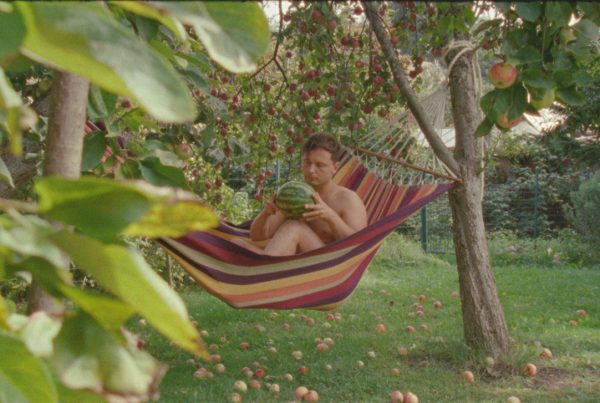
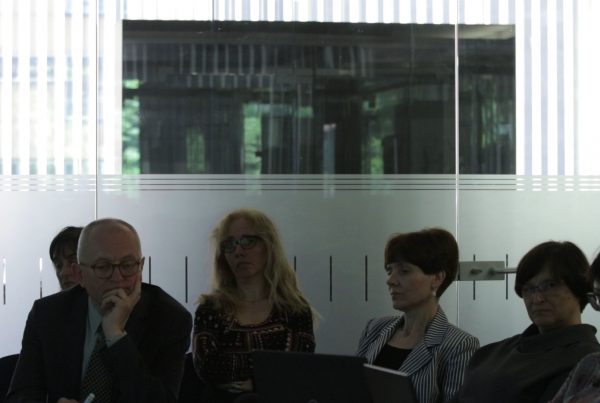
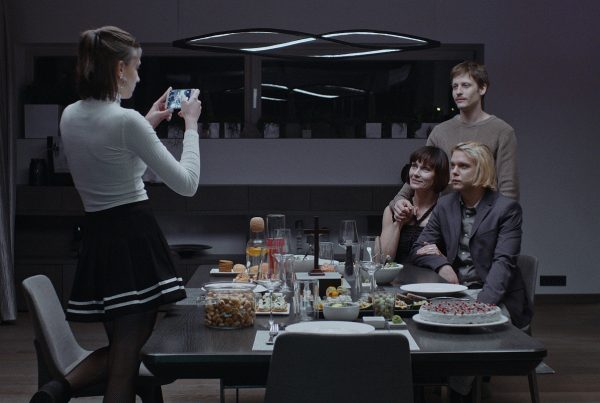
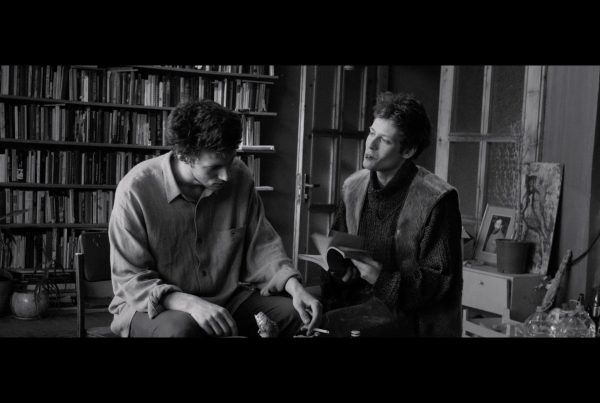
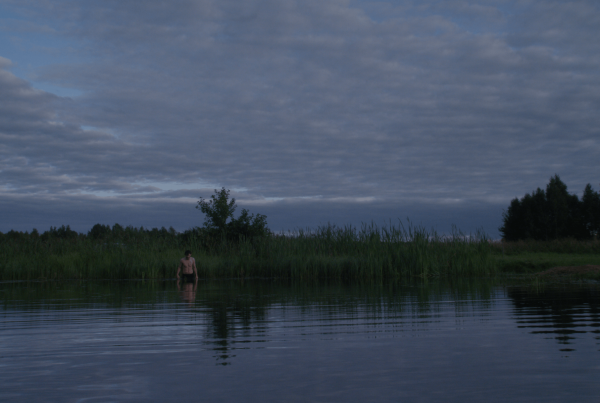
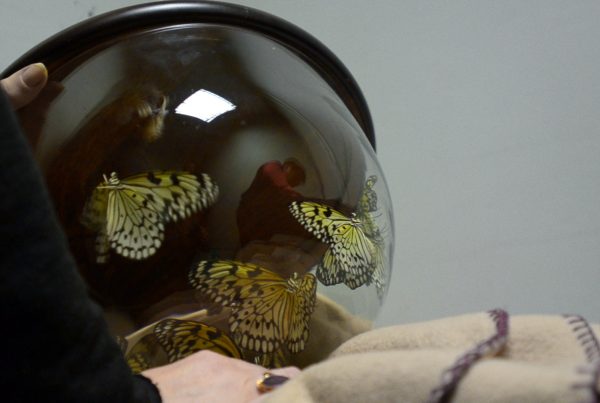
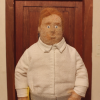
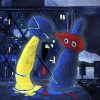

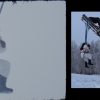


Commenti recenti